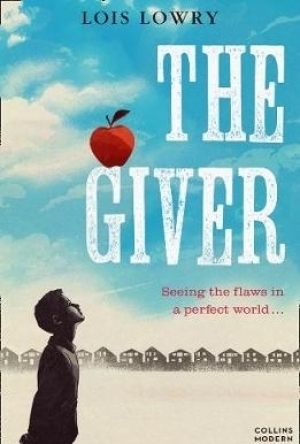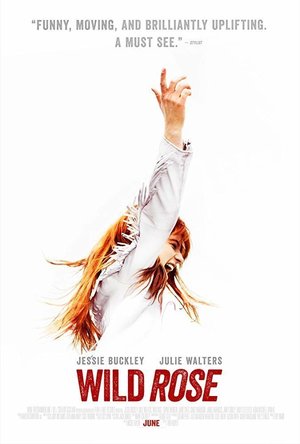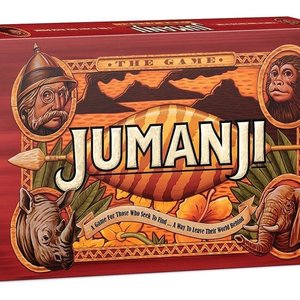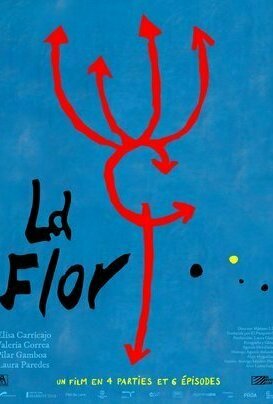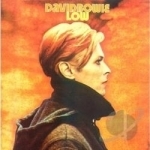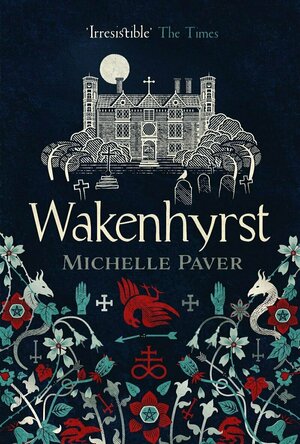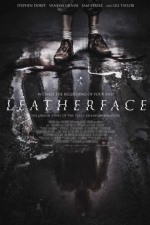Search
Search results

Tricount - Split group bills
Finance and Utilities
App
Almost 1.500.000 users already use Tricount, the simple solution to share bills with friends and...
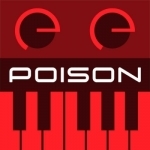
Poison-202 Vintage Synthesizer
Music
App
What reviewers and users say: "This is a very solid virtual synth that, sonically, punches well...
Fails to Disappoint :)
This book certainly deserves its status as an essential modern classic.
It provides a somewhat sinister feel, but remains thought provoking. The overall story is short, but it incorporates such strong ideas that it makes up for it being a short read. Not only is it enjoyable, but it also serves to educate the reader on the dangers of attempting a utopian society. Its concept of why it is important to retain human memories – even the bad – in order that wisdom can exist, adds to the fascinating factor.
This book would be great to spur discussion and introspection. Although fans of contemporary dystopian novels will be sure to love this series, the book isn't solely the story of a depressing utopia. It's mainly the story of the relationship between the main characters: the Giver, Jonas, and... I won't say her name, and of course, the baby Gabe. This book is a more of a mystery in which things don't much get answered- they're left to linger. That's part of the beauty and hopefulness in this book! Just read the damn book, then call me.
You won't be disappointed if you read it, because it's an enjoyable read. It contains a great plot, the community is interesting, and the ending is fantastic and JUST a little ambiguous!-- cool!
It provides a somewhat sinister feel, but remains thought provoking. The overall story is short, but it incorporates such strong ideas that it makes up for it being a short read. Not only is it enjoyable, but it also serves to educate the reader on the dangers of attempting a utopian society. Its concept of why it is important to retain human memories – even the bad – in order that wisdom can exist, adds to the fascinating factor.
This book would be great to spur discussion and introspection. Although fans of contemporary dystopian novels will be sure to love this series, the book isn't solely the story of a depressing utopia. It's mainly the story of the relationship between the main characters: the Giver, Jonas, and... I won't say her name, and of course, the baby Gabe. This book is a more of a mystery in which things don't much get answered- they're left to linger. That's part of the beauty and hopefulness in this book! Just read the damn book, then call me.
You won't be disappointed if you read it, because it's an enjoyable read. It contains a great plot, the community is interesting, and the ending is fantastic and JUST a little ambiguous!-- cool!
Awix (3310 KP) rated Wild Rose (2018) in Movies
Apr 16, 2019 (Updated Apr 16, 2019)
A Star is Paroled, More Like
Scottish-set take on the same kind of material as A Star is Born features a terrific performance (both acting and musical) from Jessie Buckley, and much less material about people falling in love or weeing themselves on stage. Talented but off-the-rails young woman comes out of prison, tries to reconnect with her mother and children, plans (not very realistically) to go to Nashville and become a country star. (The point is repeatedly made that country music is not the same as country and western music, but this is possibly not the venue to be pedantic in.) Features a cameo by Whispering Bob Harris, who gives an oddly unconvincing performance even though he's playing himself.
Buckley is tremendous, as noted, but Julie Walters is equally good as her disapproving mum (no singing from Walters, though); the film plays engagingly with audience expectations and - to its credit - resists the temptation to suggest there are easy answers to life's questions. It works really hard to earn its moments of triumph and joy: there is some real heartbreak along the way, and the film suggests that while being dedicated to your dreams is all very well, it can also make you a horrible person to be around. Cheats a bit at the very end, but has earned the right to by that point, I would say.
Buckley is tremendous, as noted, but Julie Walters is equally good as her disapproving mum (no singing from Walters, though); the film plays engagingly with audience expectations and - to its credit - resists the temptation to suggest there are easy answers to life's questions. It works really hard to earn its moments of triumph and joy: there is some real heartbreak along the way, and the film suggests that while being dedicated to your dreams is all very well, it can also make you a horrible person to be around. Cheats a bit at the very end, but has earned the right to by that point, I would say.
Parfs (178 KP) rated Jumanji: The Game in Tabletop Games
May 2, 2019
Easy to play (1 more)
Good art work
Great family friendly game
This game is great and really fun to play as a family. Simple enough concept combining numbered dice, action cards and picture dice. Draw an action card at the end of moving your counter, the card has a short rhyme about the danger you are facing along with some nice art work, it also shows what picture you need to roll on the picture dice to stop you from filling up the danger zone. You have 6 seconds to roll the picture to match the card.
The game says for people aged 8 to adult but have to say my 4 and 6 year old have been able to play this and really enjoy it fully. We can normally finish the game in about 30 minutes so is a great little time killer and the replay ability is good.
I would have liked the counters to have been shaped to match the game pieces from the movie instead of the plain coloured cones that are supplied but it is a minor gripe.
All in all if you are after an enjoyable board game you really can't go wrong with this game. It is well priced at below £15 from most retailers and is worth every penny.
The game says for people aged 8 to adult but have to say my 4 and 6 year old have been able to play this and really enjoy it fully. We can normally finish the game in about 30 minutes so is a great little time killer and the replay ability is good.
I would have liked the counters to have been shaped to match the game pieces from the movie instead of the plain coloured cones that are supplied but it is a minor gripe.
All in all if you are after an enjoyable board game you really can't go wrong with this game. It is well priced at below £15 from most retailers and is worth every penny.
Awix (3310 KP) rated La Flor (2018) in Movies
Nov 2, 2019
How can one rating do justice to film-making on this scale? The simple numbers involved are staggering: the film lasts thirteen and a half hours, took nine years to make, is composed of six different episodes comprising many more sub-narratives. It's usually shown over three or four days, for obvious reasons. Even the closing credits last for over forty minutes (yes, I stayed: my thought process was basically 'Well, I've come this far..).
There's at least one horror movie in the mix, along with a musical melodrama, a sprawling existential spy thriller, and a metafictional self-parody. Characters include archaeologists, witches, Casanova and Margaret Thatcher. Just about the only thing holding it together is the presence of the same four actresses, who play significant roles in almost every episode. It begins very generic, but becomes increasingly strange and avant garde as it progresses. One would say it has become completely unravelled by the end, but it's not as if it was ever very ravelled. Parts of it are indisputably brilliant and highly accomplished, others are kind of indifferent; some of it is actively irritating. In the end it is a gargantuan, self-indulgent oddity. Some of it is definitely worth watching, but the whole thirteen hours...? I'm not sure. Maybe wait until it comes on TV.
There's at least one horror movie in the mix, along with a musical melodrama, a sprawling existential spy thriller, and a metafictional self-parody. Characters include archaeologists, witches, Casanova and Margaret Thatcher. Just about the only thing holding it together is the presence of the same four actresses, who play significant roles in almost every episode. It begins very generic, but becomes increasingly strange and avant garde as it progresses. One would say it has become completely unravelled by the end, but it's not as if it was ever very ravelled. Parts of it are indisputably brilliant and highly accomplished, others are kind of indifferent; some of it is actively irritating. In the end it is a gargantuan, self-indulgent oddity. Some of it is definitely worth watching, but the whole thirteen hours...? I'm not sure. Maybe wait until it comes on TV.
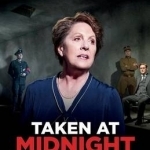
Taken at Midnight
Book
In your quest for respectability I think we can say you have been talking out of both corners of...
Karl Hyde recommended Low by David Bowie in Music (curated)
Sarah (7800 KP) rated Wakenhyrst in Books
Oct 10, 2020
Well done gothic horror
Gothic horrors can be hugely enthralling reads when done right, and I've read quite a few of these over the past few years. And Wakenhyrst is definitely one I'd add to the list.
This is a very intriguing and entertaining read. It's well written with a powerful female lead, which you wouldn't expect considering it's early 1900s setting. Maud is a very imperfect yet endearing character that you can't help but root for. The writing really helps build the the atmospheric setting and helps you visualise everything, which definitely helps with the horror and tension. I wouldn't say this is packed full of horror or scares, but rather an underlying tension and unease that builds for the entirety of the novel and rather gives you the creeps.
The problem is that this build up is spoilt a little by the ending, which isn't entirely unpredictable (considering how the book starts) and feels like a bit of a letdown. It's not a bad ending, but it just plays out exactly the way you'd expect and some of the twists or reveals that were likely intended to shock and surprise don't quite hit the mark.
Overall though this is a great example of a gothic horror and despite being quite lengthy, kept me hooked an entertained throughout.
This is a very intriguing and entertaining read. It's well written with a powerful female lead, which you wouldn't expect considering it's early 1900s setting. Maud is a very imperfect yet endearing character that you can't help but root for. The writing really helps build the the atmospheric setting and helps you visualise everything, which definitely helps with the horror and tension. I wouldn't say this is packed full of horror or scares, but rather an underlying tension and unease that builds for the entirety of the novel and rather gives you the creeps.
The problem is that this build up is spoilt a little by the ending, which isn't entirely unpredictable (considering how the book starts) and feels like a bit of a letdown. It's not a bad ending, but it just plays out exactly the way you'd expect and some of the twists or reveals that were likely intended to shock and surprise don't quite hit the mark.
Overall though this is a great example of a gothic horror and despite being quite lengthy, kept me hooked an entertained throughout.
Darren Fisher (2465 KP) rated Leatherface (2017) in Movies
Dec 11, 2020
'The BoreGore Generation...'
Is it me or do the majority of films released via Lionsgate follow almost identical film making styles and patterns? It seems to me these days that you can take any old franchise that is currently doing well, take its name, say it's a prequel/reboot/origins and churn out a dull and predictable viewing experience.
It's all here... the pre-credits scene setting things up for us: Just watch that and you pretty much know what to expect for the rest of the film. Gore: Sadly the usual post Hostel/Saw kind of gore. Victims getting killed by unusual, elaborate and highly impractical devices (why murders can't be content with axing, stabbing and gutting their victims anymore is beyond me. Seems like these newbies get their kit from Acme these days). Crushed skulls. Removing of extremities. Gut ripping predictability. Plenty of graphic scenes but we have seen it all before. Hundreds of times. Personally I've become desensitized to this style of gore. Tedious. Maybe I'll nickname it "BoreGore"... Even the soundtrack is as generic as it comes, low moody noodling that goes nowhere. So at least it is keeping consistent with the film. Generic is actually the best way to describe this film. To be honest I didn't expect much going into this film. At least they got that right...
It's all here... the pre-credits scene setting things up for us: Just watch that and you pretty much know what to expect for the rest of the film. Gore: Sadly the usual post Hostel/Saw kind of gore. Victims getting killed by unusual, elaborate and highly impractical devices (why murders can't be content with axing, stabbing and gutting their victims anymore is beyond me. Seems like these newbies get their kit from Acme these days). Crushed skulls. Removing of extremities. Gut ripping predictability. Plenty of graphic scenes but we have seen it all before. Hundreds of times. Personally I've become desensitized to this style of gore. Tedious. Maybe I'll nickname it "BoreGore"... Even the soundtrack is as generic as it comes, low moody noodling that goes nowhere. So at least it is keeping consistent with the film. Generic is actually the best way to describe this film. To be honest I didn't expect much going into this film. At least they got that right...
